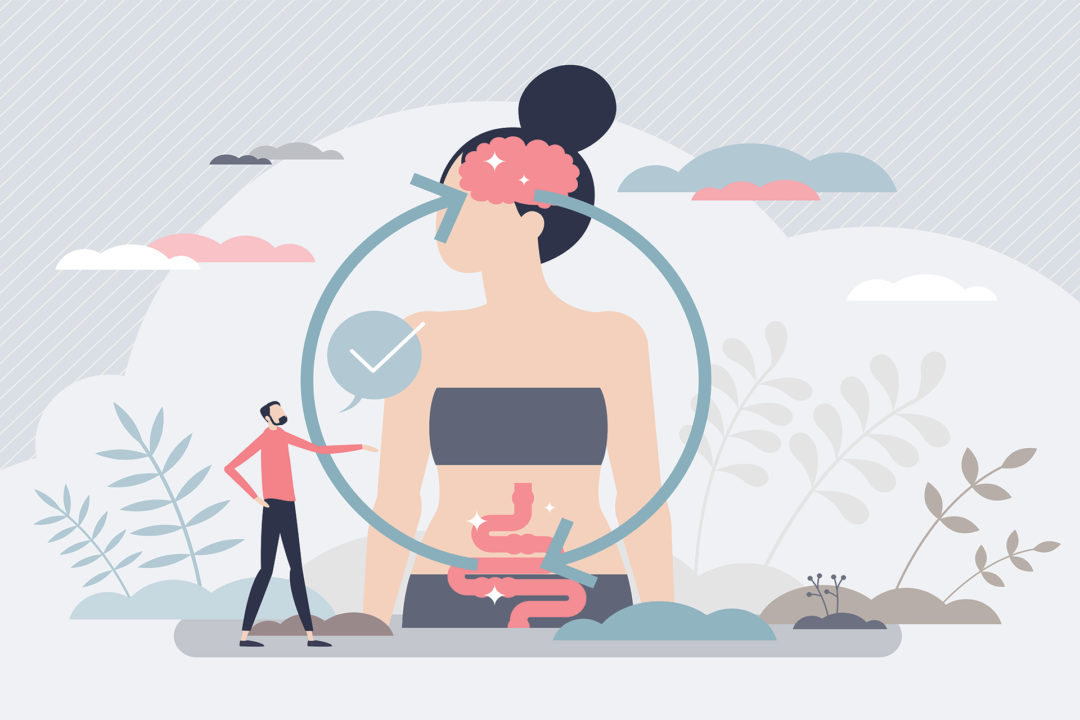It's been a year since Naturally Informed hostedMental Wellness: Mastering the Marketin January 2021, but the global conditions that made the virtual event so timely haven’t changed much. The stress and sadness that burdened so many during the trying times of the past 24 months continue to hold people back from feeling their best. And the message from keynote speaker Uma Naidoo, M.D., author ofThis Is Your Brain on Food, is as pressing as ever. Dr. Naidoo, a Harvard psychiatrist who has studied nutrition and is also a trained professional chef, educated attendees on the emerging science and practice of nutritional psychiatry.
What is Nutritional Psychiatry? “Nutritional Psychiatry,” Dr. Naidoo explained, “offers clinical guidelines based on nutrition science and evidence-based research for the use of whole foods and nutrients to improve mental wellbeing.”
Important to note: Nutritional psychiatry does not exclude the use of medications. “In fact,” Dr. Naidoo shared, “medications have saved the lives of many of my patients, so as a practicing nutritional psychiatrist, I have also prescribed many medications in certain situations. In some consultations, I work with other practitioners who prescribe medications, while I will work with the individual on nutritional components of the nutritional psychiatry treatment plan. So it’s very important to understand that one does not exclude the other, but that foods are a very important additional treatment in the toolkit of anyone who wants to improve their mental wellbeing.”
This goes for anyone, Dr. Naidoo reiterated, regardless of whether or not a person has a diagnosis of any kind. “You really don’t have to fit into the box of a diagnosis. What I mean by that: In the United States we use a system called the DSM-5, which is the Diagnostic and Statistical Manual. As a prescriber, a practitioner, I do use it as well, but it does not cover every single human being. There are many human beings that simply do not fit the diagnostic criteria for a disease, but are suffering in some way. And I really feel that nutritional psychiatry fills this gap for individuals who may be functioning in their day-to-day life, but who many not need or want medication, but may be able to use nutritional and other lifestyle strategies to improve how they are feeling.”
How does it all work? Through the brain-gut connection.
First, Dr. Naidoo explained, it’s important to understand that while the brain makes up about 2% of adult body weight, it accounts for about 20% of calories consumed—and where those calories come from is important: “As a psychiatrist and especially a nutritional psychiatrist, I feel that how we eat andwhatwe eat, in terms of a healthy whole-foods diet, is really important to our mental wellbeing. And I will say and add that when people are paying attention to how they are eating, and they start to feel mentally well, their physical wellbeing naturally improves as well. I have seen this time and time again with my own patients.”
Second, looking at the gut: The gut microbiome contains trillions of organisms, and they can be impacted in 24 hours. “So you may decide today to eat some fast food, junk food, processed food, or you may decide to eat a healthier option,” Dr. Naidoo said, “and in that 24-hour period your microbes will change. You will not experience it immediately, but you will begin to influence the environment of your gut microbiome. And over time, if you’ve chosen the fast-food meal, junk food and the processed and the ultra-processed food, over time what will happen is it will start to set up the process of inflammation in the gut. However, if you’ve chosen the healthier meal, it will influence your gut in a positive way.”
Why this matters: the gut and the brain are inextricably connected. 70% of serotonin receptors are located in the gut—and as serotonin is often called “the happiness hormone,” the relationship may now be obvious. And the gut and brain are literally, physically connected: Dr. Naidoo showed attendees a diagram of the tenth cranial nerve, the Vagus nerve, which travels from the brain to the gut. “I call it the two-way superhighway. Why? Because it works two ways. 24/7, it never shuts off, it is continuously sharing messages between the gut and the brain. So when food is digested, it definitely impacts the environment of the Vagus nerve in the gut.”
The outcome of all of this? Dr. Naidoo shared this story: “I had a patient who presented to me desperate to get a prescription, because for the first time in her life she was feeling anxious. And at that point she was referred to me by her gastro-intestinal physician. And after a further investigation, testing, and asking her full history, I realized that her lifestyle had changed—her food and nutrition intake, what she was eating and drinking changed, because she had a promotion at work. And for that reason she was eating many more fast food and processed food meals rather than preparing meals at home. And over time, over approximately 18 months, that dysbiosis and inflammation in her gut had been set up, her chemicals were out of balance, and she was starting to experience severe anxiety for the first time in her life. What we did eventually do was work with her in a nutritional psychiatry plan which healed her gut over time and reduced her symptoms.”
This isn’t all that Dr. Naidoo discussed. She talked more about how the gut works, how the brain works, how the gut impacts immunity, and so much more. The presentation—plus the entireMental Wellness: Mastering the Marketconference—is available for free on-demand atwww.NaturallyInformed.net.And for more education, click over to the Naturally Informed 2022 tab to register for free access to the live virtual shows and the on-demand recordings planned for this year.WF

RFK Jr. Calls on FDA to Explore Eliminating Self-GRAS
March 11, 2025








